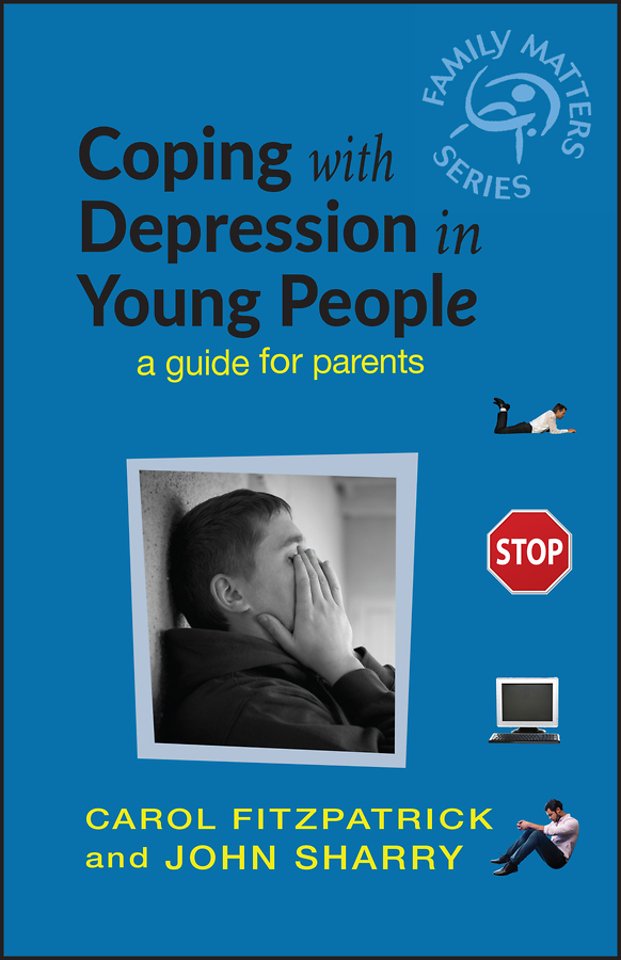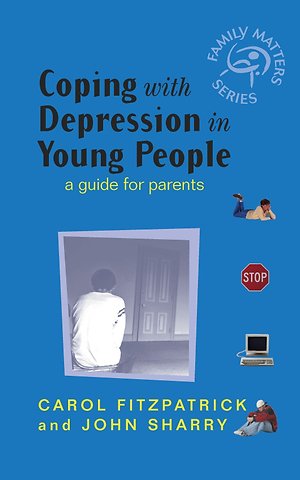Coping with Depression in Young People – A Guide for Parents
A Guide for Parents
Samenvatting
Depressive disorders can produce dramatic and frightening changes in young peoples behaviour, but while parents may suspect something is wrong, they are often at a loss to know what. This book shows parents how to tell the difference between the ordinary ups and downs and true depression, helping them better understand clinical warning signs and the various approaches to treatment. Dealing sensitively with how depression sometimes manifests itself self–harm, alcohol and drug abuse, and suicide attempts the book offers parents practical guidance on how they can reach out to their children and find professional assistance.
Specificaties
Inhoudsopgave
<p>Preface.</p>
<p>Acknowledgements.</p>
<p>1. What is depression?</p>
<p>What depression feels like.</p>
<p>How common is depression in young people?</p>
<p>Causes of depression.</p>
<p>Is depression in young people more common now than in the past?</p>
<p>What happens to young people with depression?</p>
<p>2. How to recognise depression in young people.</p>
<p>Which young people are most likely to get depressed?</p>
<p>Changes in mood and behaviour.</p>
<p>3. Depression in young people who already have difficulties.</p>
<p>Learning difficulties.</p>
<p>Attention deficit hyperactivity disorder (ADHD).</p>
<p>Conduct problems.</p>
<p>Asperger s syndrome.</p>
<p>Conclusion.</p>
<p>4. Could it be due to something else?</p>
<p>Is it due to alcohol?</p>
<p>Could it be due to drugs?</p>
<p>A serious physical illness.</p>
<p>Sexual abuse.</p>
<p>Schizophrenia.</p>
<p>Eating disorders.</p>
<p>Bipolar affective disorder (manic depressive disorder).</p>
<p>5. Getting help.</p>
<p>Talking to others who know your child.</p>
<p>Help within the family.</p>
<p>Finding out what help is available.</p>
<p>Counselling.</p>
<p>Child and adolescent mental health services.</p>
<p>Communicating with your teenager about the need for further help.</p>
<p>Approaching your depressed child.</p>
<p>6. Treatment of depression.</p>
<p>Multiple approaches.</p>
<p>Therapeutic help for the young person.</p>
<p>Parent support.</p>
<p>Family therapy.</p>
<p>Medication.</p>
<p>Hospitalisation.</p>
<p>Day treatment programmes.</p>
<p>How long does it take?</p>
<p>7. What can parents do?</p>
<p>Supporting your teenager.</p>
<p>Dealing with discipline and conflict.</p>
<p>Keeping yourself going.</p>
<p>Helping your other children to cope.</p>
<p>Tackling family problems.</p>
<p>Conflicting advice from family members/friends.</p>
<p>What parents can t do.</p>
<p>8. Suicide and self–harm.</p>
<p>Some myths about suicide.</p>
<p>Are there warning signs?</p>
<p>What to do if you suspect your young person is suicidal.</p>
<p>Coping with suicide attempts.</p>
<p>Dealing with discipline after a suicide attempt.</p>
<p>Dealing with self–cutting behaviour.</p>
<p>Suicide and alcohol.</p>
<p>9. Dealing with common problems.</p>
<p>Depression and school.</p>
<p>Depression and exams.</p>
<p>He won t go for help.</p>
<p>Sleep problems.</p>
<p>Anger and aggression.</p>
<p>Depression and bullying.</p>
<p>10. Learning from young people who have recovered from depression.</p>
<p>The Working Things Out study.</p>
<p>What it felt like when they were depressed.</p>
<p>What they thought had caused them to feel the way they did.</p>
<p>What they thought had helped them to get through their difficult times.</p>
<p>Conclusion.</p>
<p>Interactive CD–ROM.</p>
<p>11. Depression what does the future hold?</p>
<p>The statistics.</p>
<p> Good effects of depression?</p>
<p>The brain and depression current research.</p>
<p>The future and your child.</p>
<p>Resources.</p>
<p>Index.</p>

